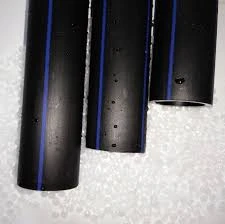Dec . 11, 2024 12:22 Back to list
pvc connection pipe
Understanding PVC Connection Pipe A Comprehensive Guide
Polyvinyl chloride (PVC) is a widely used material in various applications, particularly in construction and plumbing. Its versatility, durability, and cost-effectiveness make PVC connection pipes an ideal choice for a range of uses. This article will explore the characteristics, benefits, and applications of PVC connection pipes, providing an understanding of why they are a popular option in many industries.
What is PVC?
PVC, or polyvinyl chloride, is a synthetic plastic polymer formulated from the polymerization of vinyl chloride. It exists in two primary forms rigid and flexible. Rigid PVC is commonly used in construction and plumbing applications, while flexible PVC is used in electrical cable insulation, inflatable products, and more. PVC is resistant to environmental degradation, making it suitable for long-term use in various settings.
Characteristics of PVC Connection Pipes
1. Durability One of the most significant advantages of PVC pipes is their durability. Unlike metal pipes, PVC is resistant to corrosion, rust, and chemical damage, ensuring a long lifespan with minimal maintenance. This resilience makes them suitable for both underground and above-ground installations.
2. Lightweight PVC is remarkably lightweight, making it easy to handle and transport. This characteristic reduces labor costs during installation and allows for quick setups in various applications, from residential plumbing to commercial construction.
3. Cost-Effective The production of PVC pipes is relatively inexpensive compared to other materials like copper or steel. This cost-effectiveness contributes to the popularity of PVC pipes in various projects, allowing contractors to stay within budget without compromising quality.
4. Versatility PVC pipes come in various sizes and can be used for different applications, including water supply, drainage, and irrigation systems. Their adaptability makes them suitable for both residential and industrial projects.
5. Easy Installation PVC pipes are designed for easy installation, often utilizing a solvent cement that creates a strong bond when connecting pipes. This straightforward process reduces the need for specialized tools, further lowering installation costs.
Benefits of Using PVC Connection Pipes
- Resistance to Chemical Damage PVC connection pipes can withstand a range of chemicals without degrading. This resistance makes them suitable for transporting corrosive substances without fear of pipe failure.
pvc connection pipe

- Low Thermal Conductivity PVC has low thermal conductivity, preventing heat loss in hot water systems and helping maintain the temperature of the transported liquid
.- Environmental Impact PVC is designed to be energy efficient in its manufacturing process, and it is also recyclable. This aspect contributes to sustainability efforts and reduces the environmental footprint of construction projects.
- Safety PVC pipes are non-toxic and safe for drinking water applications. They are compliant with various health regulations, ensuring that the transported water remains uncontaminated.
Applications of PVC Connection Pipes
PVC connection pipes have a wide range of applications in different sectors
1. Residential Plumbing They are commonly used in home plumbing systems for water supply and drainage. Their resistance to corrosion and chemicals makes them an excellent choice for carrying potable water and wastewater.
2. Irrigation Systems In agriculture, PVC pipes are widely used for irrigation systems, allowing for efficient water delivery to crops with minimal waste.
3. Drainage and Sewer Systems Their durability and resistance to chemical attacks make PVC pipes ideal for stormwater management and sewage systems, ensuring effective waste transportation without leaks.
4. Industrial Applications Numerous industries rely on PVC connection pipes for their durability and resistance to chemicals, using them in manufacturing processes and waste management.
5. Electrical Conduits Flexible PVC is also used as protective conduits for electrical wiring, offering safety and protection against environmental factors.
Conclusion
PVC connection pipes are an essential component in modern construction, plumbing, and industrial applications. Their durability, cost-effectiveness, and versatility make them a preferred choice among contractors and engineers. As the demand for sustainable building materials continues to grow, PVC pipes will likely remain a popular option, contributing to efficient, cost-effective, and environmentally friendly infrastructures. Understanding the benefits and applications of PVC connection pipes can help professionals make informed decisions in their construction and plumbing projects.
-
High-Quality PPR Pipes and Fittings Durable ERA PPR & PVC PPR Solutions
NewsJul.08,2025
-
Black HDPE Cutting Board - Durable, Non-Porous & Food Safe HDPE Plastic Cutting Board
NewsJul.08,2025
-
High-Quality CPVC Panel Durable HDPE & PVC Panels Supplier
NewsJul.08,2025
-
Double PE Welding Rod Supplier - High Strength, Durable & Versatile Welding Solutions
NewsJul.07,2025
-
High-Quality PVC-O Pipe Supplier Durable 75mm PVC Pipe & Connections Leading PVC Pipe Company
NewsJul.07,2025
-
HDPE Drainage Pipe Supplier – Durable & Corrosion-Resistant Solutions
NewsJul.06,2025

